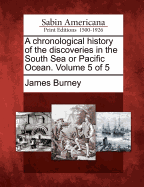Experimental theater
- See improvisational and experimental theater.
Explorata
A work by Ben Jonson (1641), also called SYLVA or TIMBER, or DISCOVERIES MADE UPON MEN AND MATTER.
Also see Shakespeare tribute and theme.
Experimental theater
Pronunciation key ( pə-sif′ik ) |
Pa•cif•ic
n.
[OFr. pacifique < L. pacificus : pax peace + facere to make < pacificare; see PACIFY].
adj.
Also pa•cif•i•cal (-i-kəl) adj. —pa•cif′i•cal•ly adv.
 
|
In the 1600's many European explorers were already familiar with the Atlantic but the Pacific remained largely unknown. The Dutch navigator Willem Jansz became the first European known to reach the shores of Australia in 1606, sailing there from Indonesia and exploring the eastern shore of Gulf of Carpentaria. The Dutch seaman Abel Janszoon Tasman was the first European to reach Tasmania and New Zealand in 1642.
A captain of the British Navy, James Cook undertook three voyages during the 1760's and 1770's making him the most prominent among explorers of the Pacific Ocean. Cook searched for a continent that was believed by geographers to lay south of Australia.
During the first voyage, 1768-1771 Cook visited New Zealand and several other islands in the South Pacific which were at that time unknown to Europe. The second voyage (1772-1775) he traveled farther south than any European had ever journeyed, sailing into frigid Antarctic waters, and carefully navigating around icebergs which were obscured by fog. Dense ice prevented him from getting close enough to make an actual sighting of the continent of Antarctica.
Cook sailed for the northwest coast of North America in 1776 in search of a western route to the long sought after Northwest Passage. During that voyage, he became the first European to make a visit to the Hawaiian islands. Cook sailed onward along the western coastline of Canada, entering the Arctic Ocean. Ice blocked his path and he thus turned back to Hawaii. While there, in 1779, Cook was killed during a battle.
Pronunciation key ( eks-prō′pri-ā′shən ) |
ex•pro•pri•a•tion
n.
Express rifle
Pronunciation key ( iks-presh′ən-is′ti-kʼl-i ) |
ex•pres•sion•is•ti•cal•ly
adv.
Pronunciation key ( iks-presh′ən ) |
ex•pres•sion
n.
[L. expressio < expressus; see EXPRESS adj].
Exemplification of emotional and spiritual qualities through the medium of music; tempo, accent, time, the level of softness or loud. In modern artistic compositions these are indicated by the composer, however substantial room is permitted for individual interpretation. These qualities were recognized in the 17th and 18th century when composers such as Bach and Handel rarely ever commented on them. Domenico Mazzochi is the first to have used the terms crescendo and diminuendo in 1636.
Expression in other forms of art are achieved by proper used of the forms available to the artist. Therefore, a painter will use color, texture and shape to evoke particular emotional response. The poet uses meter, cadence and verbal contrast. The dramatist, not unlike the composer, leaves interpretation to the skills of the actor to do the interpreting and the technical crew who create the setting for the drama.